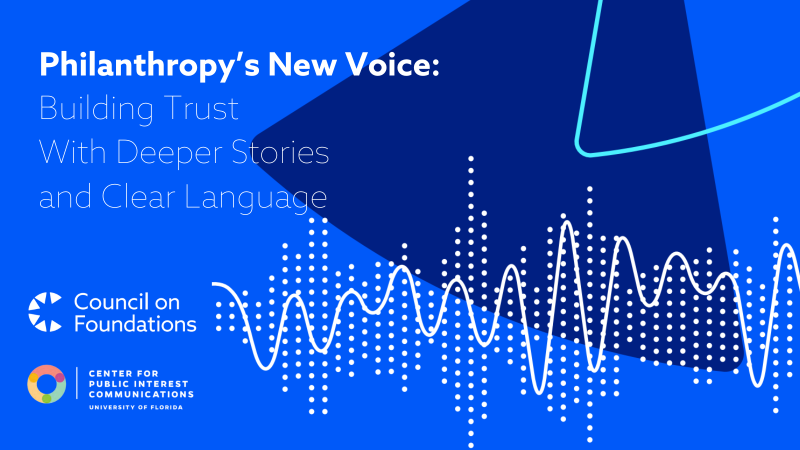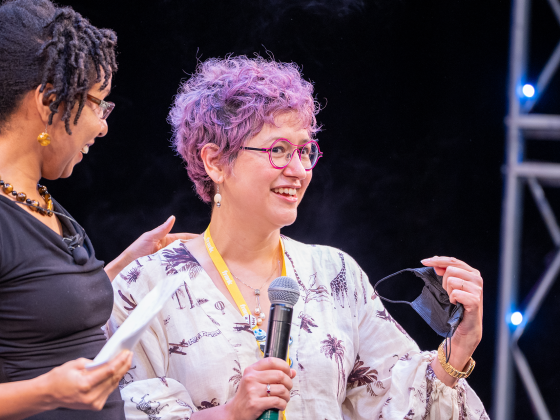The Council on Foundations and the Center for Public Interest Communications today announced the release of Philanthropy’s New Voice, the largest study ever of narratives in philanthropy.
The report, resulting from a yearlong, multi-method study, found that a big part of the reason Americans don’t understand philanthropy, or its impact on their lives, is the sector’s own messaging. But the report also offers science-backed strategies to build understanding and trust, starting with the words foundations use, and the stories they tell.
“Foundations play an indispensable role in communities across the country, but the important role philanthropy plays in American society is unclear to many,” said Council on Foundations President and CEO Kathleen Enright. “With these research-backed recommendations, philanthropy can adapt to counter harmful narratives and build trust.”
“It’s clear from our research that the American public, members of Congress and their staff, and sector practitioners want foundations to be more transparent and share details about how philanthropy works,” said the Center for Public Interest Communications Director and report co-author Ann Searight Christiano. “Using this report, foundations can learn how to tell relatable, ethical stories that provide the right kind of transparency, including nitty-gritty details and the perspectives of foundation staff and community partners.”
Part of the study analyzed 10 types of storytelling narratives and found that all 10 resulted in higher perceived trust, transparency, and effectiveness in foundations – and lower concerns – compared with existing stories about philanthropy. Trust increased the most with stories that include specifics about how money is spent and how decisions are made.
In addition, interviews with congressional staffers and analysis of Congressmember social media posts revealed that, with some notable exceptions, members of Congress have positive perceptions of philanthropy and seem more interested in collaboration with foundations than increased regulation – but their lack of understanding of the charitable sector is holding them back from potential partnerships.
The report pulled findings from:
- A national survey of 3,557 Americans sampled from diverse identity and ideological backgrounds to match U.S. demographics;
- A survey of communications practitioners who work in the sector;
- Multiple types of content analyses;
- Interviews with Congressional staffers and communications practitioners;
- Social media listening across platforms, including Facebook, Instagram, and X
###
About the Council on Foundations
The Council on Foundations is a nonprofit membership association that serves as a guide for philanthropies as they advance the greater good. Building on our almost 75-year history, the Council supports more than 900 member organizations in the United States and around the world to build trust in philanthropy, expand pathways to giving, engage broader perspectives, and co-create solutions that will lead to a better future for all. Learn more about the Council and become a member by visiting cof.org.
About the Center for Public Interest Communications
The Center for Public Interest Communications, the first of its kind in the nation, is designed to study, test, and apply the science of strategic communication for social change. The Center helps organizations create change and discover how behavioral, cognitive, and social science can show how people think, make decisions, and behave. The Center helps organizations develop and implement powerful communication strategies through science, systems thinking, and human-centered design.


